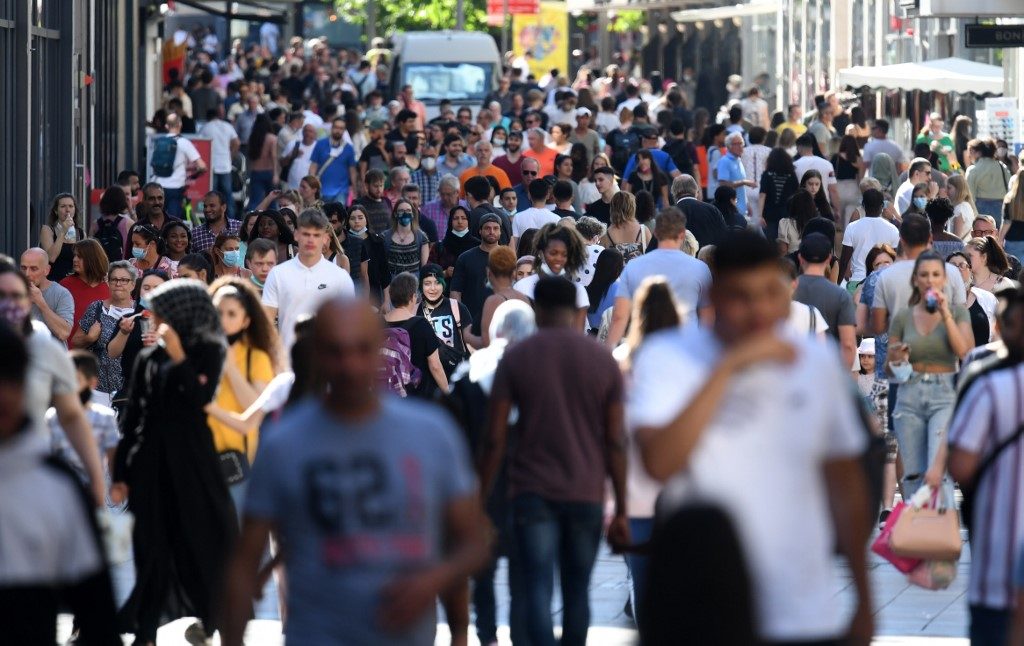SUMMARY
This is AI generated summarization, which may have errors. For context, always refer to the full article.

Germany, long adverse to being in the red, on Tuesday, August 25, posted a public deficit of 51.6 billion euros for the 1st half of 2020, with coronavirus lockdowns undercutting government revenue as it increased spending.
The emergency spending has been credited with helping Europe’s top economy weather the pandemic-induced shock better than many of its neighbors, and a separate survey on Tuesday showed German companies were optimistic about the rebound.
The German economy posted a deficit of 3.2% of gross domestic product (GDP) in the 6 months to June, according to federal statistics agency Destatis, above the 3% limit under European Union rules that Brussels suspended due to the pandemic.
In the same period of 2019, Germany recorded a public surplus of 2.7% of GDP, or around 46.5 billion euros.
For the first time since 2010, state revenue was down year-on-year, Destatis said, while government spending soared 9.3% as it tried to support the economy.
Finance Minister Olaf Scholz said last week that Germany will take on yet more debt in 2021 to lessen the impact of the pandemic, forcing it to suspend its cherished policy of keeping a balanced budget.
Scholz previously said Germany planned to borrow around 218 billion euros in 2020 to help pay for a huge rescue package to steer the country through the coronavirus-induced downturn.
Destatis revised upwards the GDP estimate for the 2nd quarter of 2020 to show a contraction of 9.7%, better than the initially reported 10.1% slump.
It is still “the sharpest decline since quarterly GDP calculations for Germany began in 1970,” the agency said, worse than at the height of the financial crash, when GDP fell 4.7% in the 1st quarter of 2009.
‘Road to recovery’
The German economy is expected to see a sharp recovery in the 3rd quarter of 2020 however, after the relaxation of pandemic restrictions allowed economic activity and public life to resume.
A key survey separately found that business morale improved again in August for the 4th consecutive month.
The Ifo institute said its monthly barometer rose to 92.6 points, from 90.4 points in July.
“The German economy is on the road to recovery,” Ifo president Clemens Fuest said.
The index had plummeted to a record low in April when Germany’s coronavirus restrictions closed factories, restaurants, and shops, before starting a rebound the following month as the economy gradually reopened.
“Today’s Ifo index keeps the hopes for a V-shaped rebound alive,” ING economist Carsten Brzeski said. “However, the fact that a rebound is not necessarily the same as a recovery will be the main theme of the coming months.” – Rappler.com
Add a comment
How does this make you feel?





![[OPINION] Fossil fuel debts are illegitimate and must be canceled](https://www.rappler.com/tachyon/2024/04/IMHO-fossil-fuel-debt-cancelled-April-16-2024.jpg?resize=257%2C257&crop_strategy=attention)



![[In This Economy] Brace yourselves for more deficits, debt](https://www.rappler.com/tachyon/2023/09/TL-Brace-yourselves-deficit-debt-September-29-2023.jpg?resize=257%2C257&crop=241px%2C0px%2C720px%2C720px)
There are no comments yet. Add your comment to start the conversation.